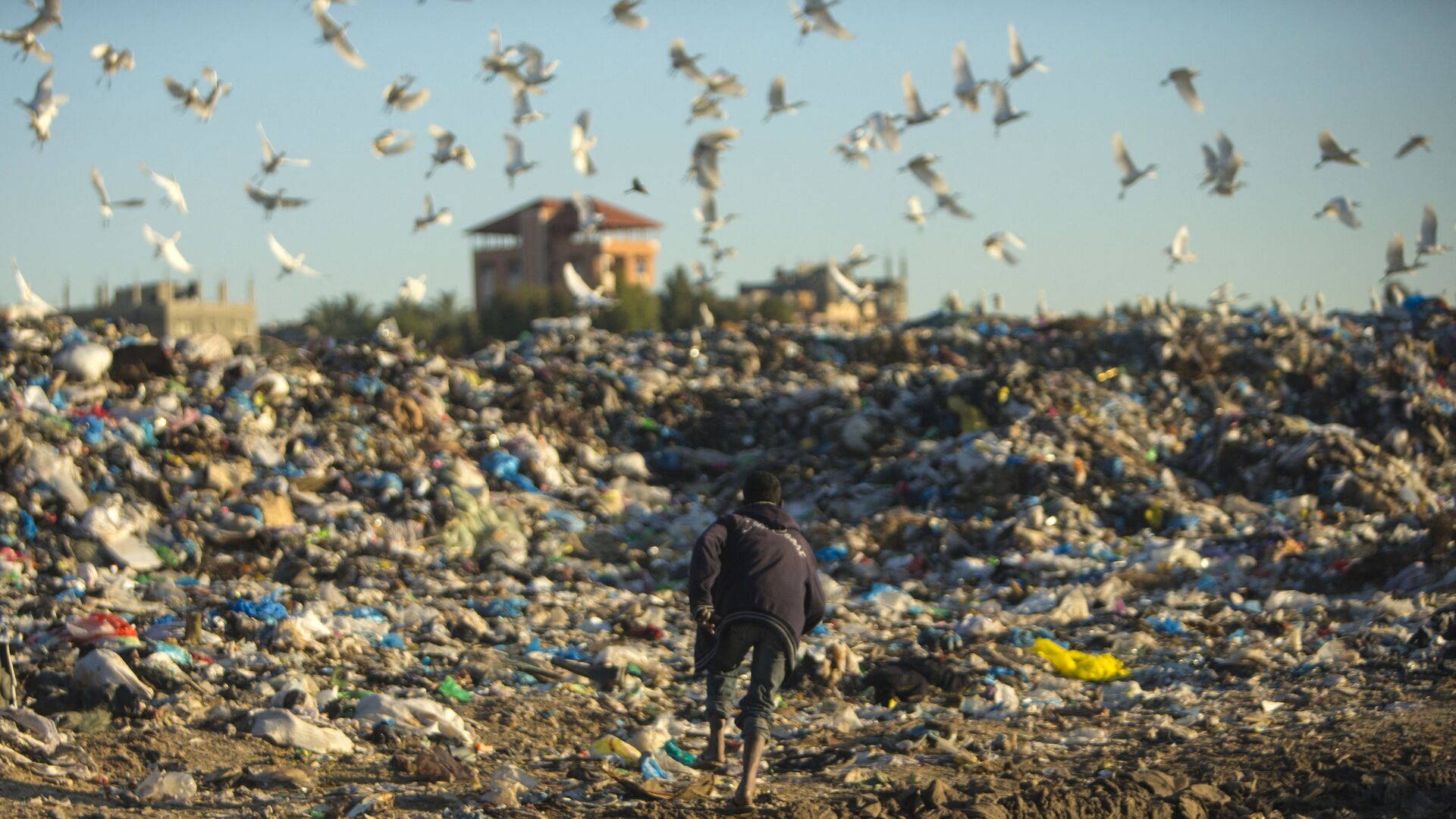Israel is Already Flooded With Plastic, But Activist Warns It Will Only Get Worse

© AFP 2023 / Mahmud Hams
Subscribe
Israel produces nearly a million tons of plastic per year, and it is estimated that by 2050 that number will triple. In the past, the country has tried to implement a number of measures to tackle the situation, but a Greenpeace activist says stricter steps should be taken.
Israel's got a problem - and it's not of a security nature. The country is drowning in plastic, researchers say, and the general belief is that the situation will only get worse.
Drowning in Plastic
To understand the scope of the problem, it's necessary to look at the numbers.
Israelis use some 70,000 tons of disposable utensils annually, forking out $620 million. Overall, the country produces 900,000 tons of plastic a year, but only nine percent of the total number is being recycled. Where is the rest? The waste is dispersed across the country.
Recent research found that Tel Aviv is the third most polluted coastal city in the Mediterranean basin out of 22 places examined.
90 percent of all beach litter in Israel is plastic, whereas 70 percent of the trash found in the waters of the Red and Mediterranean seas contained plastic bags and containers.
Caroline Wagner, a plastic campaigner at Greenpeace Israel, an organisation that fights to improve the country's environment, says the situation is "dire" and "massive", and she warns that the repercussions could be disastrous too.
"Studies have already shown that sampled marine filter feeders along Israel's coast all contain microplastic from anthropogenic pollution. [And that] microplastic has all sorts of consequences including polluting the environment and impacting human health".
Environment on the Radar
Throughout the years, Israel has been trying to address this problem. In 2017, for example, it introduced a fee on plastic bags at local supermarkets. It also offered consumers cloth and paper bags as alternatives that aimed at reducing the consumption of the hazardous material.
Last year, it also approved a system that enabled customers to return plastic bottles to supermarkets and receive the deposit fee they paid for them. And, recently, Finance Minister Avigdor Lieberman pledged to introduce a purchasing tax on all plastic disposables, promising it would dramatically reduce the problem.
However, the catch is that it might not. Israel has several communities that are regarded as big consumers of plastic. Such is the case with the Ultra-Orthodox and many religious families that go by the Jewish law that prohibits any chores during Shabbat, including the washing of dishes, something that prompts them to use plastic instead.
And such is the case with many Arabs with their traditionally big families and low incomes that also rely on disposables in their households.
But Wagner says the situation is still avertible, and Greenpeace Israel has been engaged in a number of activities aimed at raising Israelis' awareness of the problem.
"Locally, we support a ban on single-use plastic similar to what was introduced by the EU. Last year, we held a series of webinars on the topic... interviewing various experts. On a wider scale, we actively campaign against big corporations and expose the link between oil, plastic and climate".
Overall, at Greenpeace they expose problems and demand a change, and they also call on the Israeli government to take more aggressive measures against plastic consumption.
"Israel is lagging behind in terms of having stricter plastic regulations and policies. The country needs a single-use plastic ban that would prohibit the use of plastic cutlery, plates, cups, straws and other unnecessary disposable items", said Wagner.
That ban can only be achieved through legislation, but for a country that produces nearly one million tons of plastic per year, a business that generates billions of dollars, that endeavour could be extremely difficult.
But Wagner is certain that Israel simply doesn't have any other option.
"If business continues as usual, industry estimates predict that plastic production could double by 2030-2035 and triple by 2050. Research has also shown that by 2050 there will be more plastic in the ocean than fish. [So]...the future doesn't look good if we don't act now".

